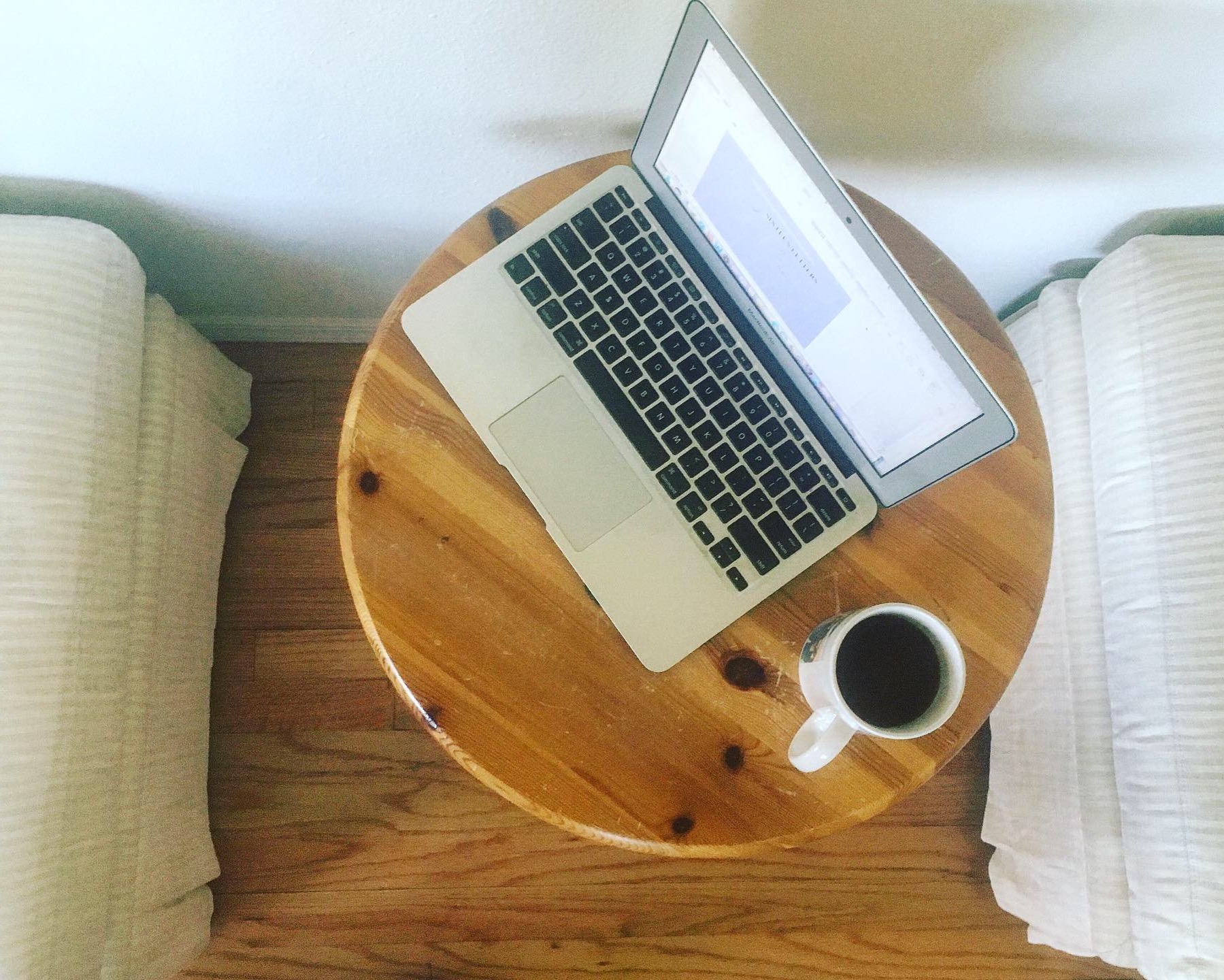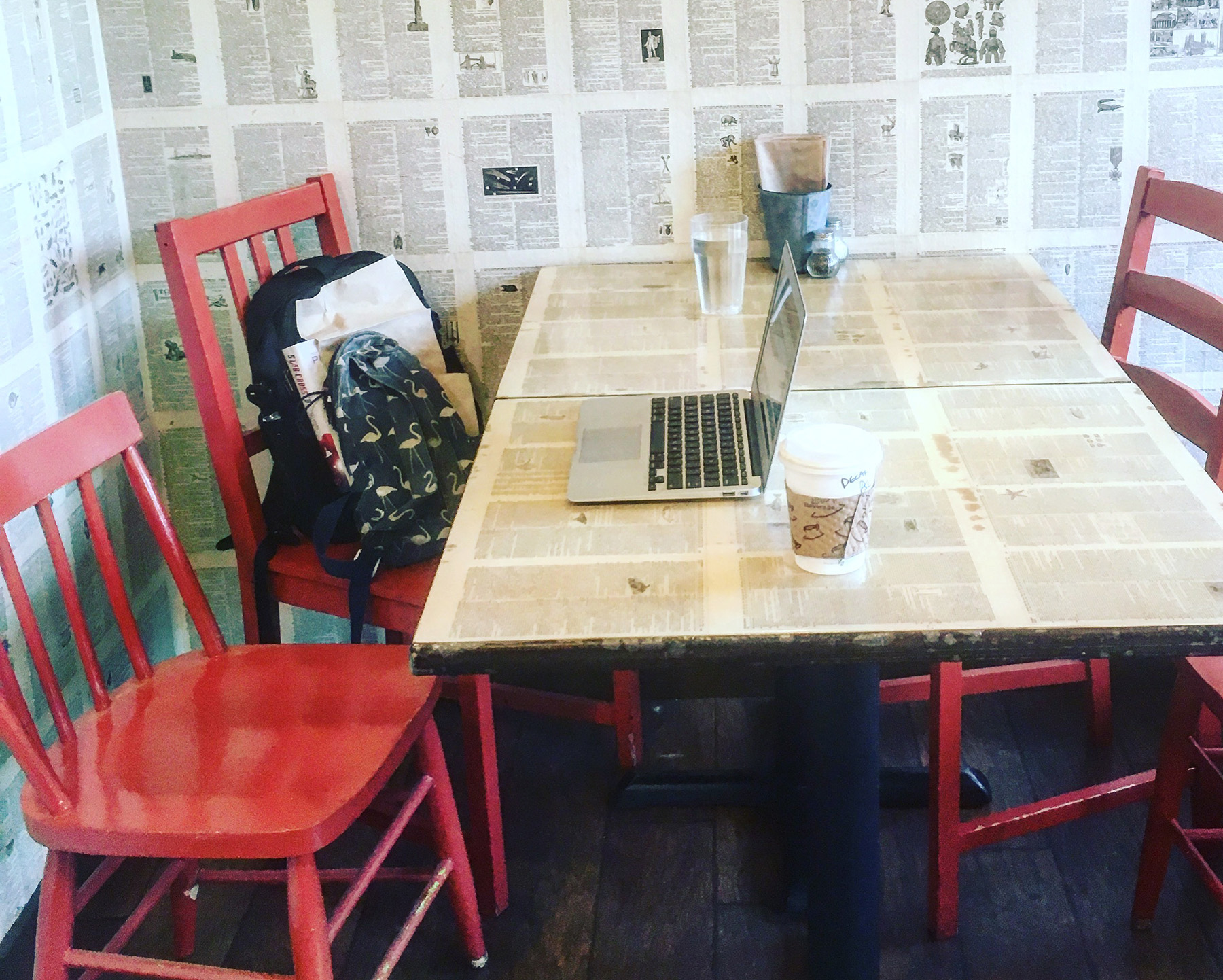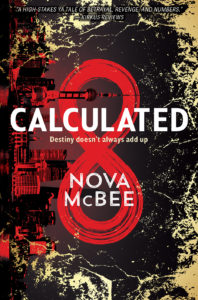I’m thrilled to be sharing with you today the first in a new “Day in The Life” series with the Wise Wolf Books authors.

Nova McBee is the author of Wise Wolf Books debut title, Calculated, and its sequel, Simulated. She is a self-proclaimed culture nerd who has lived and worked in Europe, the Middle East and Asia. She currently resides in the Pacific Northwest with her husband and three children. I had the chance to catch up with Nova one morning to discuss what a day in her life looks like.
Rachel Del Grosso: First, thank you for taking the time out this morning to let me pick your brain.
Nova McBee: Of course! I also love seeing how other authors do their writing life.
RD: I’ll start off with an easy question. What time does your day usually start?
McBee: I wake up around 5:00 a.m. I’ve always been an early bird. I make coffee—
RD: I hate to interrupt but I have to jump in, because you know my obsession with coffee. How do you take yours?
McBee: Ahhh, my love affair with coffee. I have had it many, many different styles over the years and all over the world. I love them all for different reasons, but my standard is the long strong espresso type of coffee made by an Italian Moka with a splash of milk.
After coffee and some quiet time, I make a plan for what I hope to accomplish before my kids wake up. I’ll do research, write out a scene; usually I already know which scene I want to work on from the day before.
RD: That’s an interesting point: you plot out—or at least think about—what you want to write the next time you sit down to write. Do you find that doing this helps you to jump into the writing more quickly in the morning?
McBee: Yes. I always make a plan, even if its vague, of what I need to work on that day. It helps me immensely. One day, I’ll story board my scenes or plot out stakes or rearrange my scenes to make them more intense. Other days I will simple write all the words. And some days are dedicated only to refining sentences and choosing lovely proses and adding emotion. If you break it down to smaller goals, it gets a lot easier to write. Before my kids wake up, I try to do a short writing sprint.
RD: How much writing time do you usually get at this point?
McBee: [Laughs] About 45 minutes.
RD: And then it’s time to go into parenting mode.
McBee: Exactly. After my kids wake up, it’s breakfast, get ready for school, or summer fun. During the summer, my husband takes them for the morning after breakfast so I can write until around lunch. But if kids are doing well, he always allows me the time to write.


RD: Tell me a little bit about where you like to write at this point in your day.
McBee: These days, I usually write at my house (if my kids are gone) or at my parent’s house. They have a large down office/Rec room that is quiet, warm, and cozy. Before Covid, however, I loved writing in cafes— the noises and bustle doesn’t bother me at all. In fact, it energizes and stimulates me! I like writing in libraries too.
RD: How has COVID-19 affected your writing life?
McBee: COVID didn’t really affect my writing to be honest. I actually wrote a lot during Covid—two short stories, more than 3/4 of a book in my fantasy series, and Simulated all during Covid. It just affected meeting up with other writers in person, going to events, and writing out in public. I actually read more during Covid, too.
RD: How do you get into the writing mood?
McBee: I try to read a page or two of some new YA novel to get my head in the right place. Then I begin writing.
RD: I love that you read to put yourself in the writing mood. It’s such an easy trick to get the juices flowing.
McBee: Absolutely! There are a ton of tricks to get those juices flowing. If I get stuck with writing the scenes, I’ll move on to research what I need for the story, and that almost always jump starts a scene or idea. Another trick, is putting it on paper. Looking at your story in a new way. For me, journaling out the stakes, big reveals, key dialogue points, fun one liners, themes, and simple details I know I want to add really helps shift gears in my head, like I can see where the road is going ahead of me.
I also snack on healthy foods all day long, which helps fuel my writing. My dentist has tried to get me to stop snacking for years, but it just won’t ever happen.
RD: So after you’re done writing, what’s next for your day?
McBee: I usually spend the afternoon with my kids. We play or have friends over, and then I cook dinner, which we eat as a family. After dinner we play more or we may go out for a walk, and then my husband and I read books with the kids before bed. Throughout the day I’m usually connecting with author friends or my agent, and I usually hop on social media too.
RD: This is a great segue into a topic I wanted to get your take on. We all know how important it is for authors to maintain an online presence. How do you juggle the time you spend online and the time you spend writing?
McBee: That depends on how much I have to do and have gotten done—or what my family needs are. When I’m ahead of schedule and the kids are good, I will pop on more regularly. I enjoy being able to connect with readers, talk books, and meet upcoming authors. But social media isn’t my main priority. First and foremost, I want to use my prime time and effort to write. So I try to balance it.
Now that I have deadlines and publishing schedules and various meetings for film stuff, my online presence has decreased because my time is focused on writing quality books—and of course family and rest. Once those deadlines are met, I will happily dive in more often.
 RD: Let’s talk a little more about your books. You’ve written and published two novels in your Calculated series. What have you learned from that experience that you’re using to propel you through writing the third book in the series?
RD: Let’s talk a little more about your books. You’ve written and published two novels in your Calculated series. What have you learned from that experience that you’re using to propel you through writing the third book in the series?
McBee: So much! But mostly, I learned that all of my previous writing practice—the past rejections and standing firm in who I am and the vision I have—was all worth it. It has all played a part in pushing through toward a goal, even if the goal is tough and requires endurance, persistence, and hard work.
RD: In a review I read on Calculated, the reviewer said, “Numbers are not just something on a page but how [Jo] views everything in life” and I thought this was such an interesting point. Would you care to expand on this?
McBee: Jo’s gift is really unique. Everything she sees is draped in numbers, equations, graphs. She is always calculating, counting, and forming predictions. She’s a human calculator. As an example, she always knows how long something takes, so she gets annoyed when people say it took “a really long time” as she knows exactly how long everything takes. She can’t separate herself from the way her numbers read people. She can predict if a boy will hold her hand or not, if they are lying, or are in danger. She can size up a room and all of its occupants and knows how to make a lot of money, which is why some really bad characters want her. She’s super special, and yet, she doesn’t know how to truly use her numbers until she meets an even more special character named, Red, who shows her how to harness her gift.
RD: How important to you was it to write a book about human trafficking without being overly graphic?
McBee: I’d say it was pretty important. Typically, I don’t read overly graphic content, so naturally I didn’t want to write it either. Once I knew human trafficking would be a minor thread in the book, I knew the topic needed to have light shed on it, but it had to be done delicately so that it would be appropriate for most readers. I’ve had a lot of reviews or dm’s thanking me for how well I approached it and many parents letting kids read it because of that.
RD: That’s pretty incredible if you think about it. Let’s talk about your reading life.
McBee: I read for pleasure/growth at night.
RD: I love that you mentioned reading for growth. We all know that writers should be readers first. What is it that you feel you’ve learned the most from your history as a reader?
McBee: Most everything I have learned about writing comes from books. Reading and finding books you love to read can teach you a lot. They are my main textbooks for writing. I don’t have a degree in writing, so when I knew I wanted to write books, I started reading even more. When I found a book I truly loved, I’d dissect it. How did they set that up plot line? How did they foreshadow that event? How did they make me love that character? I learned to take in books in a new way—by enjoying the craft, and learning from it at the same time.
RD: Dissecting the books you love; that’s some great advice for aspiring writers. And now I obviously have to ask, what are some of your favorite books you’ve read so far this year?
McBee: Whew, with two books coming out in one year and plotting a third, my personal TBR pile is hurting! It is the first year in a long time that I started a ton of books and never finished them—not because I didn’t love them but because of how busy I’ve been. This year, I also gave priority to reading novels with my kids and non-published books that my cp’s wrote. Some that I enjoyed were: Dearest Josephineby Caroline George, Shadow and Bone by Leigh Bardugo, The Seventh Sunby Lani Forbes, and All I Want for Christmas is The Girl Next Door by Chelsea Bobulski (releasing through Wise Wolf Books this November), and Story Genuis. I also re-read Cress from the Lunar Chronicles and Legendary from the Caraval Series—both major favs.
